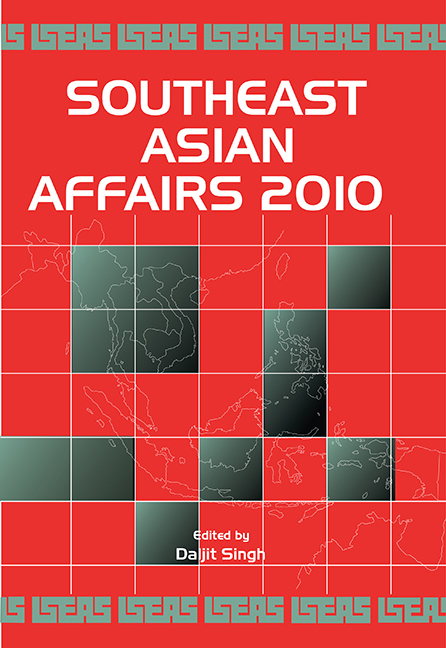“Unity” as a Discourse in Thailand's Polarized Politics
from THAILAND
Published online by Cambridge University Press: 21 October 2015
Summary
On the night of 19 September 2006, the military rolled its tanks onto the streets of Bangkok; it was Thailand's seventeenth military coup since the country abolished the absolute monarchy and adopted democracy in 1932. General Sonthi Boonyaratglin, leader of the coup, rationalized the military intervention by stressing, “Thai society has become polarised as never before, with mass confrontations between supporters and opponents of the former prime minister (Thaksin Shinawatra) threatening to turn violent.” Sonthi was referring to the months-long protestations staged by the People's Alliance for Democracy (PAD) which began in late May 2006 against Thaksin. The PAD, similarly, claimed that the Thaksin government tended to seek benefits for itself in an illegal way which led to social disunity.
Three years on, in a move to resolve the protracted political deadlock, Prime Minister Abhisit Vejjajiva called on his Cabinet members and all Thais to do their duty to help return Thailand to a society in harmony. Abhisit said, “Everyone should think of what we can do to enjoy normality again.” In reality, the gap between the two opposing political camps, one that supposedly supports Thaksin and the other that protects the interests of the Bangkok elite, has remained wide and is indeed threatening the much-celebrated Thai discourse of “unity”. This is taking place in the country which has never been officially colonized and is proud of its independence thanks to, as claimed by Thai leaders, the national trait of unity. Recent developments within the realm of Thai politics where the Bangkok elites and red shirts have competed fiercely in the safeguarding of their own interests seem to suggest that the underlying premises of the notion of unity might now be obsolete.
This short essay argues that the discourse of unity has always been in the jealous possession of the Thai traditional elite. Unity is indeed a top-down concept, defined and driven by the leaders. They urge their citizens to uphold unity particularly in times of crisis. There are obvious advantages of unity. It is important to recognize that unity had served the country well in the past and allowed political leaders to rally support from the public against internal and external threats. However, equally important is the fact that the discourse of unity also has an unseen usefulness for the leaders.
- Type
- Chapter
- Information
- Southeast Asian Affairs 2010 , pp. 332 - 342Publisher: ISEAS–Yusof Ishak InstitutePrint publication year: 2010



